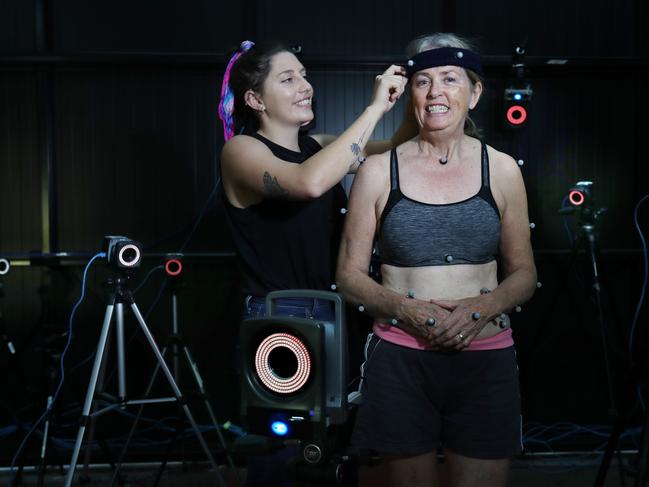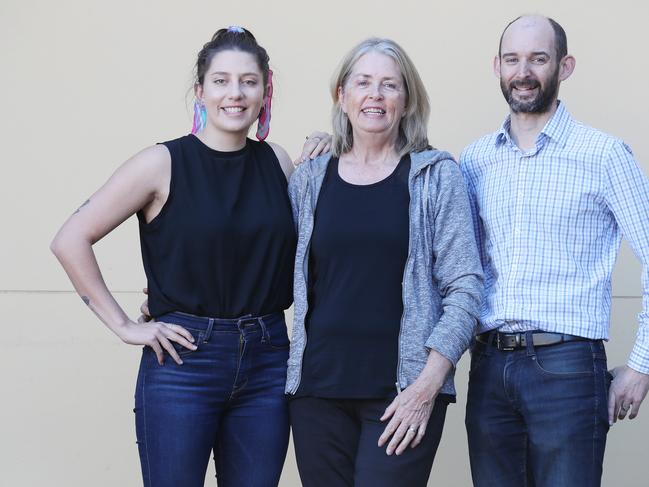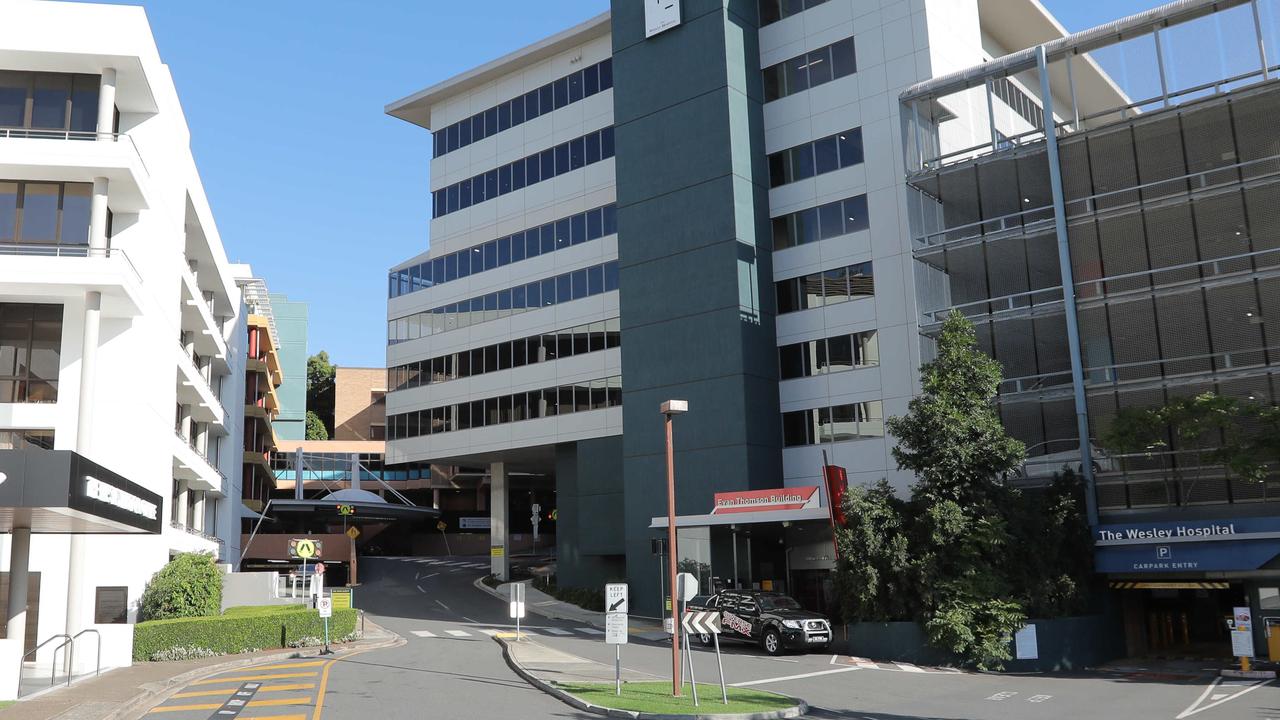Qld researchers test Hollywood technology on Parkinson’s disease patients
Technology used by elite athletes and in Hollywood movies is being trialled on Parkinson’s disease patients. This is how it works.
QLD News
Don't miss out on the headlines from QLD News. Followed categories will be added to My News.
QUEENSLAND researchers are harnessing motion-capture technology used by elite athletes hoping it will help Parkinson’s disease patients improve balance and avoid falling over as they walk.
The Australian Catholic University researchers in Brisbane have launched a pilot study of people with the debilitating nervous system disorder aimed at assessing whether the technology can assist them in changing the way they move to reduce the risk of falls.
Study participants are fitted with motion sensors and have their gait filmed and analysed in the university’s biomechanics laboratory at Banyo, in Brisbane’s north.
MEDICAL CANNABIS TRIAL FOR TOURETTE SYNDROME
PATIENTS WITH TYPE 2 DIABETES TEST SMART PHONE APP
QLD RESEARCHERS HELP FIND ANOREXIA GENES
The technology then gives them visual feedback as they walk in real-time aimed at training them to alter movement patterns likely to negatively affect balance.

Elite athletes at the Australian Institute of Sport use the same technology to optimise their running technique, not only to optimise performance but to reduce injury risk.
The three-dimensional motion capture technology has also been used in blockbuster Hollywood films, such as the Lord of the Rings. Using a combination of cameras, sensors and software, motion capture systems record an actor’s movements which are then used to create a digital character.
ACU biomechanist Mark Creaby said research showed the upper bodies of people with Parkinson’s disease often lean too far from side to side as they walk, putting them at risk of losing their balance and toppling over.
The motion capture analysis gives them feedback on their side-to-side movement, hopefully training them to adjust their walking style.
“What we’re trying to do is establish if people with Parkinson’s disease are able to change the way they walk,” Dr Creaby said. “Obviously when you think about younger athletes, their ability to adjust and change things is quite high, whereas we really don’t know if it’s something that’s feasible in patients with Parkinson’s disease.”

The researchers need 24 Parkinson’s disease patients to attend two testing sessions for the study, conducted by exercise and sport science honours student Kate McMaster. They will be compensated for their travel costs.
Lynne Armes, 65, who was diagnosed with Parkinson’s disease five years ago, has joined the study, keen to promote research into the neurological condition.
“Falling hasn’t been an issue up until now but it’s something that I’m conscious of preventing,” she said. “There are definitely skills that we can learn that help strengthen balance and stability and as my disease deteriorates, I think it will be a really worthwhile investment.”
Parkinson’s disease patients up to 80 years old are eligible for the study.
For more information: bit.ly/ACUParkinsons


